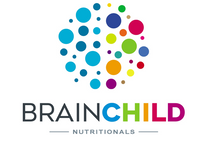The Liquid Vitamins That Help My Autistic Child
Do you spend a lot of time researching the best supplements, medicines, and diets for an autistic child? If so, you know about liquid vitamins. But how effective are these supplements in treating the symptoms of autism?
And what kinds of supplements are the best? If you're ready for some answers, keep reading our comprehensive guide for the best vitamins for autistic children.
The Truth about Vitamins
Vitamins for autistic children are still being studied. The information is limited. However, there are cases where vitamins have significantly improved autistic behavior.
But always remember to carefully evaluate the claims and results for any supplement. Overall, the best vitamins will come from companies with trustworthy reviews and long-term customers.

Liquid Vitamins vs Traditional Vitamins
If you're a caregiver for a child with autism, you know how hard it can be to administer medications. For example, some autistic children find it hard to fully swallow pills, especially when they're larger. Sometimes they'll spit them out or have a tantrum before they even take them.
That's why liquid vitamins are a great alternative to traditional vitamins. You can easily take the vitamin tincture and pour the needed amount into a liquid drink. The best part is, the child won't even know because there will be no change in taste!
The Best Liquid Vitamins for an Autistic Child
The best vitamins for autistic children can range depending on your specific needs. But it's always best to consult with your physician before starting a vitamin regime.
Nevertheless, studies have shown that vitamin C has the greatest benefits for autism. And this supplement is very safe and has no side effects when dosed correctly! Keep reading to learn more about vitamin C and other supplements.
Vitamin C
Studies have shown that many autistic children lack vitamin C. And because of this vitamin C depletion, autistic children have a hard time fighting off free radicals.
Not to mention, vitamin C also helps with our immune system. Therefore, they also have an imbalance in the body which can account for the symptoms of autism.
Vitamin C is important because it helps with the creation of neurotransmitters. And if you're not familiar, neurotransmitters help our cells communicate with each other. Lastly, autistic children who take vitamin C have a decrease in autistic behaviors.
Omega-3
Omega 3 or fish oil is an essential vitamin that helps with the brain and eyes. And just like vitamin C, children with autism also have a depletion of omega 3 fatty acids in their bodies.
It's also important to mention that omega-3 may have little to no benefits for autism. However, because vitamins for autism are still being studied, it's possible that individual cases are successful.
If you're not sure what dosage is right for your child, here is a basic guideline to follow:
- For children around the age of 1-3, the recommended dose is 700 mg
- For children around the age of 4-8, the recommended dose is 900
- For males around the age of 9-13, the recommended dose is 1200 mg
- For females around the age of 9-13, the recommended dose is 1000 mg
- For males around the ages of 14-18, the recommended dose is 1600 mg
- For females around the age of 14-18, the recommended dose is 1100 mg
These doses may vary depending on the weight and height of your child. However, these doses are a good starting point for most children! You can also increase or decrease the dosage if needed.
B Vitamins
B vitamins help the nervous system and immune system. There are about seven types of B vitamins that can help children with autism. These are the most common types of B vitamins:
- Calcium
- Magnesium
- B6
- B1
- B12
- Folic Acid
We have a great anti-stress b vitamin complex here. All these are great vitamins for autism. However, these vitamins shouldn't replace a medication that was prescribed by a professional. So if you're trying to switch over to liquid vitamins, speak to your doctor before ending a medication!
NAC
NAC or N-acetylcysteine increases an antioxidant in the body. This antioxidant can help defend against free radicals. And if you're not familiar, free radicals damage the body over time.
Children with autism can greatly benefit from this supplement as it can lower anger and repetitive behaviors. NAC can also support a healthy immune system. This is great because children with autism tend to have compromised immune systems.

Tips for Helping Your Child Take Their Supplements
The best vitamins for autistic children are usually in a liquid form. When giving your child Vitamin C or any other supplement, make sure to carefully read the instructions and ingredients.
Therefore, make sure your child isn't allergic to any of the active ingredients. And ensure that you're doing the right amount based on your child's weight, age, gender, and height.
You can use the dropper to administer the liquid vitamins straight into your child's mouth. However, if your child is throwing a fit, you can always administer the vitamin into a drink. Here are some examples of drinks that are great for administering vitamins:
- Orange juice
- Smoothie
- Apple juice
- Protein shake
- Hot or cold tea
These drinks will mask any taste of the liquid vitamin. Therefore, your child won't even know that they're taking their vitamins.
Find What Works for Your Child
Overall, an autistic child can greatly benefit from vitamin C and other supplements. So start your healing journey today by purchasing the best vitamins!
If you have any more questions, contact us today and speak to one of our knowledgeable staff!







